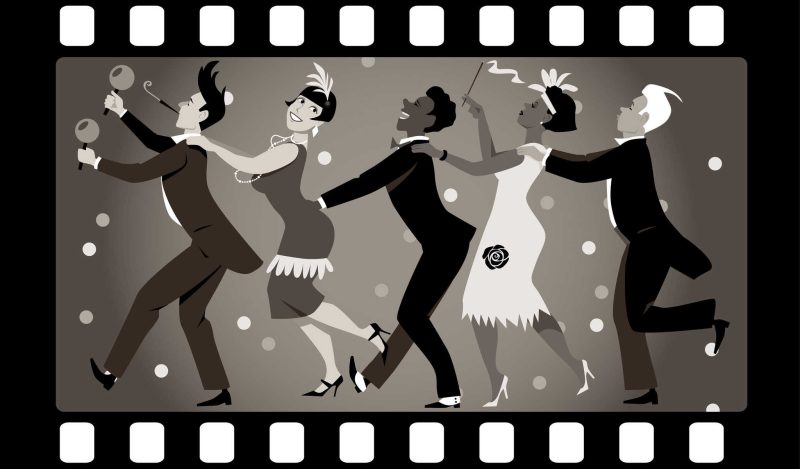A decade or so ago my wife and I took a cruise from Seattle up to Alaska and back. The ship stopped at one of the most beautiful places on the face of the earth, Sitka, Alaska. Sitka at that time was a small fishing village with a bay that allowed four large cruise ships to invade at the same time.
The population on shore literally doubled as the ships disgorged their passengers simultaneously. The result was a long oval conga line of shuffle-stepping sightseers working their way around downtown, which consisted of a very small, very old Russian Orthodox church, and some shops with trinkets for sale made by native residents – native residents of China, that is.
Not being interested in Chinese trinkets, my wife and I walked to the Alaska Raptor Center which is very interesting, then did some “history reading” in the cemetery, followed by fish and chips at the wonderfully-named, but now-defunct Victoria’s PourHouse.
Unsurprisingly, no one followed my wife and me on our trek on foot to the Raptor Center and the cemetery. We did meet another conga-rejecting couple hiding from the masses at Victoria’s PourHouse. But, by and large, the conga line persisted and we were the outcasts. Happy, fish-and-chips-eating, Raptor-loving and cemetery-enlightened outcasts, but outcasts nonetheless. Our short time in Sitka illustrated how people respond differently to the question “Now what do we do?”
We’ve been engulfed for two-and-a-half years in “Now what do we do?” A fair share of our population, surprisingly willingly, joined a conga line. The conga line was organized – demanded – by the CDC, arrogant, ignorant (often stupid) governors and self- and media-anointed minions of governmental responses.
The dance steps demanded for the conga line in my state included banning golf, while encouraging walking for exercise on golf courses. The rationale would be, of course, that swinging a golf club enlivens viruses that would otherwise be sedentary and remain sedentary during walking.
The medico-legal term for a demanded health-care conga line is “the protocol.” Doctors can be reprimanded, have licenses suspended or even be sued for not following “the protocol.” I had my license threatened three times during the last 2.5 years, the accusations always anonymous and the complaints some ill-defined form of noncompliance. This “the protocol,” as well as other health care protocols, replaced thought and personal scholarship with compliance backed by licensing exposure for non-compliance.
Through all of the last 2.5 years of the COVID-conga, I’ve tried to assess the thoughts of my patients on protocols and shuffle-step compliance. On the dancer level, the motivation for joining was equally fear-to-the-point-of-panic and hypothesized virtue.
Allegiance to dance instructions from “an authority” drove many, many decisions. A very young woman told me, “I’m just trying to follow the CDC instructions” when I raised my eyebrows at a 20-year-old getting more shots. Fear close to panic was common. Skepticism of authority was not common. Blind allegiance to the protocol was common, and remains common. A good conga line requires disciplined cooperation among the dancers.
Another observation I made, or maybe a conclusion I came to, is that empathy is dead. A big part of dealing with people in private practice is learning what their problems are and trying to address those problems within scope of practice. Doing that effectively requires, and is a form of empathy.
Sympathy and empathy are similar, but different. Most people understand sympathy. They have sympathy for someone with cancer, for example. Sympathy is a feeling of pity or sorrow for someone else’s misfortune. You can have sympathy for someone being sick without understanding precisely what they’re going through. Sympathy might be a sort of generalized feeling of sorrow for someone having trouble. And you care about that person as a human being. Empathy is a little different.
The key difference between sympathy and empathy is understanding on a personal level what someone else is going through. From empathy, support groups form with people who have similar problems. Families of people undergoing cancer treatment come together and have a deeper understanding of what another family is going through than, perhaps, a random but well-meaning person on the street.
Empathy for small business owners damaged or ruined by the conga-line in support of lockdowns is almost nonexistent. Small businesses have been strangled. The owners have lost their dreams. They’ve lost their livelihoods; they’ve lost their savings. And, let’s not forget the last generation from which some of those businesses were purchased. That prior generation has lost their retirement plans.
Had Costco lost the same percentage of income that I lost out of my business checking account, Costco would have lost $15 billion. Yes, billion with a b. Would that have made the news? Small businesses don’t make the news and no one cares. Empathy is dead.
Another group may be paying, potentially paying for a lifetime. That’s kids – kids who are still developing neurologically. Our knowledge of the timetable of visual neurological development is remarkably limited. More and more is known about specific brain areas involved with specific visual functions, but not the timing of hot periods of neural development. I wrote about what we may have done to the development of face recognition here.
Between NIAID and the Washington State department of health, about 2,600 purported public health experts couldn’t figure out that we may have permanently injured children’s visual neurological (as well as other neurological) development.
If we have irreparably impaired face recognition development in a generation of infants, will we be diagnosing those kids as autistic in the future? If so, I’m sure that can be blamed on exogenous factors excluding government mandates. No one has ever been injured by cooperating in a conga line and dancing to the music, for goodness sake. Empathy is dead.
Can a free market survive without empathy? Can a free society survive without empathy? I guess we’ll see. Maybe empathy will revive. I was a little more optimistic before I figured out how many public health officials care so little about children that they fail to even consider neurological development. I worry that time will bring out new conga music and the demand from the CDC and arrogant governors to dance to the tune of isolation, masks and needle-sticks.
Maybe the ranks of self-defined outcasts having fish and chips with a beer will grow. I never did have the rhythm required for the conga – or most any dance for that matter. Just a personal word of caution: beware those who proffer mandates, but show no honestly demonstrable empathy with kids. They have no empathy with anyone else, either. Don’t have sympathy for them for their lack of empathy. Be repulsed by it.
Join the conversation:


Published under a Creative Commons Attribution 4.0 International License
For reprints, please set the canonical link back to the original Brownstone Institute Article and Author.









